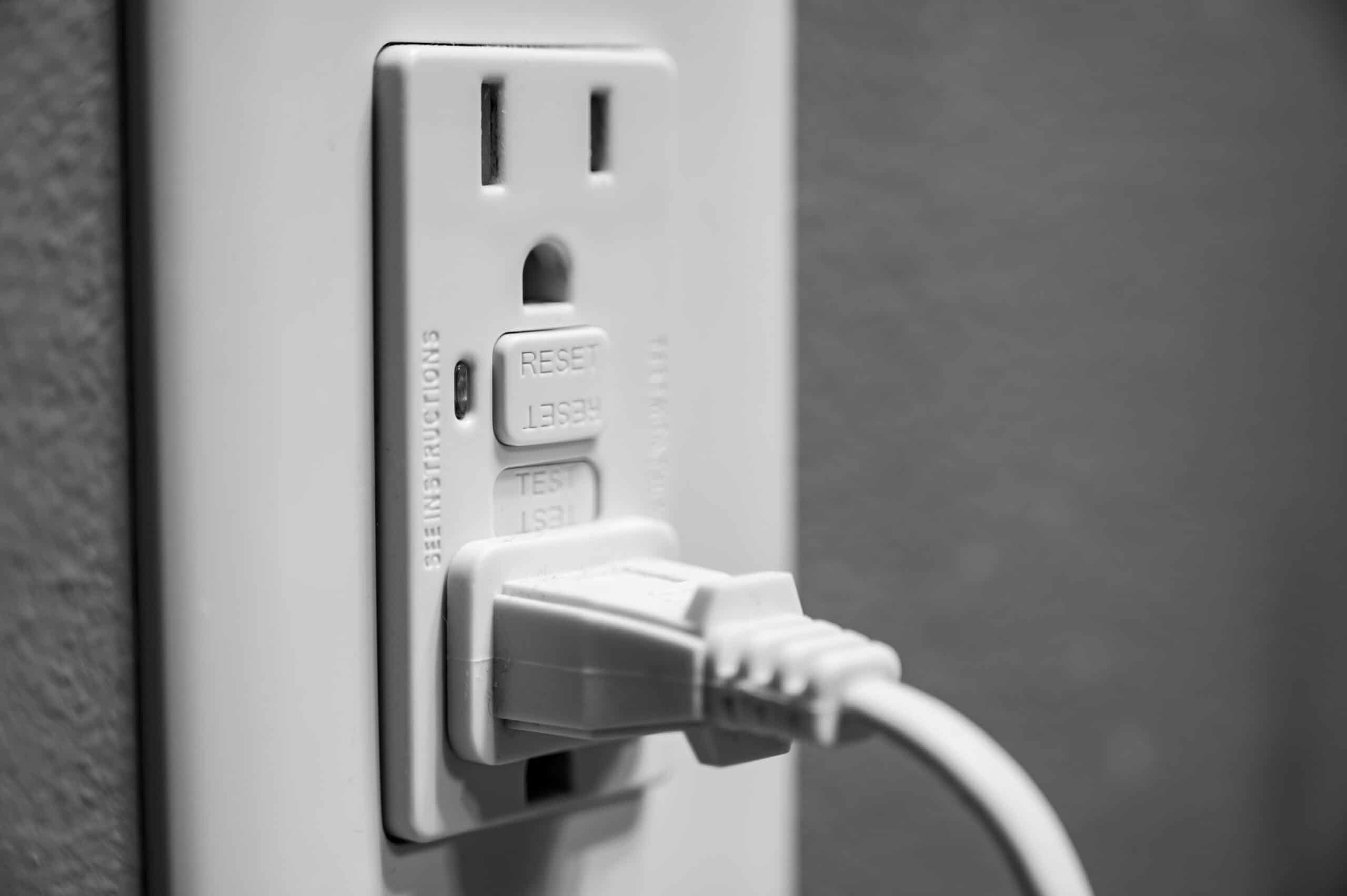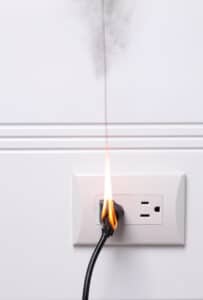
What is a GFI Outlet?
GFI stands for ground fault interrupter and is sometimes known as GFCI which is a ground fault circuit Interrupter. GFI outlets precisely monitors the balance of electrical current moving through an electrical circuit. If power goes where it shouldn’t like in a short circuit, the GFCI immediately cuts off the electricity.
These outlets substantially reduce the risk of severe or fatal shock. The use of GFI outlets began in 1971, and home electrocutions dropped 81% from their inception to the national electrical code.
A GFCI prevents fatal electric shock through the elimination of sustained current draw when a short occurs. GFI protection is commonly used near damp and wet locations.
Understanding a Ground Fault
Your home electrical current runs through wires within the walls. Covering the wires is a plastic- or rubber-based material. This insulates the wire from everything around it.
The wires carry electrical currents to your wall outlets and switches throughout the home. Free-running electricity, such as lightning, always seeks the ground.
What happens when electricity escapes the insulated wires? It’s free, and it takes its own path to the ground. This happens when wires are faulty or damaged. When a person is in the way of “escaped” currents, injury or even death can result. When the current escapes, this is known as a “ground fault.”
How Does a GFI Outlet Work?
The GFI outlet protects against faulty or damaged wiring. The outlet monitors the electrical current flowing through the wires and will shut off power if there is any variance in electrical current.
The current flowing into the outlet should equal the current flowing out to the neutral side into where you put in a plug. If the GFI outlet detects even a small difference, that’s a possible leak and will shut off the power.
This electrical leak could injure or kill someone. In the case of leak detection, the outlet shuts itself off protecting you or anyone else from a possible electric shock.
You’ve probably seen a GFI outlet. They’re the outlets in the bathroom that have a “test” and “reset” button on them. It’s important you have GFI outlets in bathrooms, kitchens, outside or in other places near a water source. If you don’t, call a residential electrician for installation.
Why are GFI Outlets in Required in Some Places but Not Others?
Water and moisture increase the risk of accidental shock. In the 1970s when first introduced, GFI outlets were used outside, especially around pools.
In 2020 Residential building codes now mandate GFI outlets for areas of water or moisture in the home. GFIs are outside, near sinks, in bathrooms, crawlspaces, and unfinished basements, and outside all require GFI protection.
The Importance of GFI & GFCI Outlets
Electricity in our homes and offices is an amazing tool most of us take for granted. It powers our lights, computers, and life-saving medical devices. It’s not without its hazards, though.
Electricity is dangerous when not given the proper respect. About 1,000 people die per year due to electrical injuries. Twenty percent of these electrical injuries occur in children most of which happen within the home.

You don’t want your outlets looking like this.
Thankfully electrical technology has advanced and we have tools available such as GFI outlets that make our homes safer from these risks.
Final Thoughts on GFI Outlets
Remember a GFI and GFCI outlets protect you and your loved ones against damaged or faulty wiring. GFIs detect dangerous electrical current leaks and cut off the electricity when necessary.
Is your home’s wiring up to code? If you need a Spokane electrician contact Infinite Electric today!
- Do Garage Door Openers Require a Dedicated Circuit? - 21/08/2023
- Dedicated Circuits - 01/07/2022
- How to Become an Electrician - 13/06/2022

